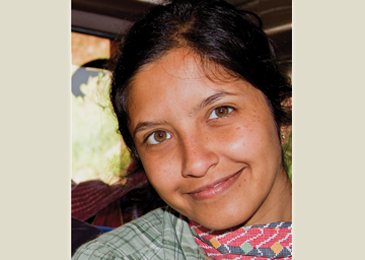“There is plenty of room for creativity and flexibility�
March 13, 2013 | Wednesday | Interviews | By BioSpectrum Bureau
“There is plenty of room for creativity and flexibility�
Dr Deepa Agashe, faculty, National Center for Biological Sciences, Bangalore
Why did you opted for a biotechnology course?
Evolutionary processes are fundamental to understanding how life began, and how the incredible diversity of organisms around us is maintained. New methods such as high throughput sequencing, transcriptomics, proteomics, and the ability to synthesize data from multiple labs across the world have transformed biology in the past few decades. Most interestingly for me, this gives us enormous power and opportunity to simultaneously understand evolution at microscopic and at macroscopic levels. Therefore, I find it quite exciting to use these tools to answer basic questions about how species adapt to new challenges in new environments over time.
Are you now satisfied after having selected the course?
Absolutely!
How do you look at biotechnology as an area of opportunity for career growth?
There are so many applications of the tools developed in biotechnology, and so many more to be explored, that there is plenty of opportunity for motivated and creative people in this field. Perhaps what is important is that this creativity is fostered and encouraged in an environment that is flexible, with room for inevitable hiccups that come with progress.
Who is your role model and why?
I have been fortunate that there were always people around me from whom I could learn something valuable, so I never really felt the need for a role model. I had great academic mentors throughout my career like Dr Milind Watve (Garware College, Pune), Dr Dan Bolnick (my PhD advisor) and Dr Christopher Marx (my post-doctorate advisor). I have also been lucky in that respect.
What are your aims and objectives in life?
I can't plan far enough ahead for my entire life, but for the near future my goal is to establish a great lab here at NCBS to answer major open questions in evolutionary biology and ecology. Another goal is to integrate younger students from schools and colleges into research at universities and research institutes, to give them a chance to share the excitement that I feel while doing science. Apart from these academic aims, I would like to make more space in my life for the arts and for traveling more across India.
As a women, how do you perceive the biotechnology industry?
I'm afraid I'm not really qualified to answer this question because I know very little about the biotech industry, particularly in the Indian context. As I spend more time here I hope to learn enough to have an educated opinion!









